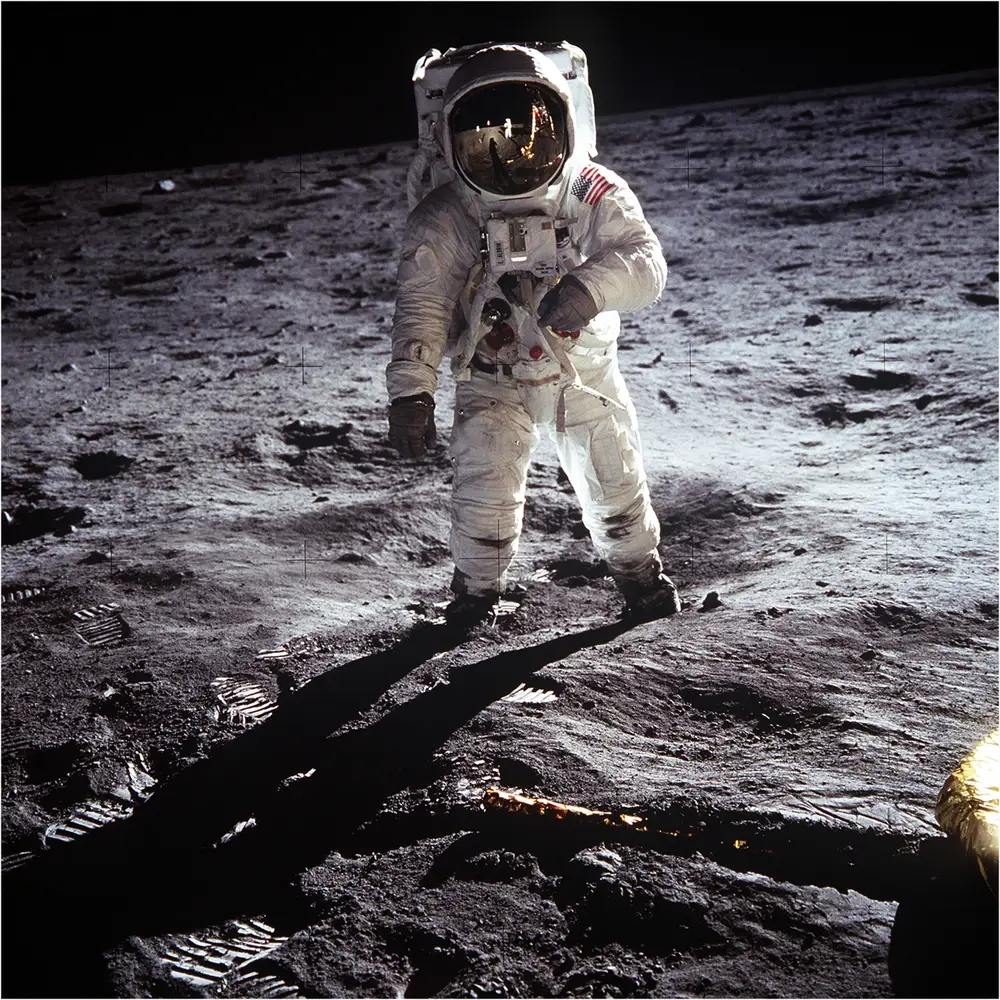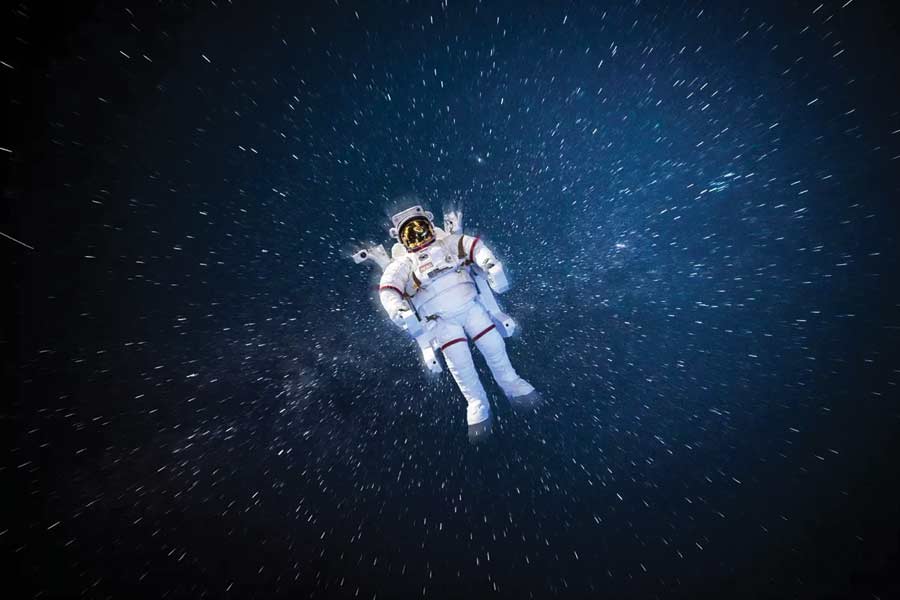What Happens If Someone Dies In Space? A Fascinating Look At The Final Frontier
The vast expanse of space, with its mysteries and wonders, has always captured the imagination of humanity. However, the question of what happens if someone dies in space raises unique considerations that blend science, ethics, and the unknown. While space travel has brought us closer to the cosmos, it also prompts us to contemplate the fate of individuals who may pass away beyond the Earth's atmosphere.
Author:Black Crystal Reviewer:Maxwell CanvasMar 08, 20241.7K Shares28.6K Views

The vast expanse of space, with its mysteries and wonders, has always captured the imagination of humanity. However, the question of what happens if someone dies in spaceraises unique considerations that blend science, ethics, and the unknown.
While space travel has brought us closer to the cosmos, it also prompts us to contemplate the fate of individuals who may pass away beyond the Earth's atmosphere.
In the upcoming decades, NASA plans to send people back to the moon and potentially explore Mars, which raises the concern: What if a tragic accident results in a fatality in space?
Twenty people have sadly passed away over the history of human spaceflight, yet none of these deaths took place in space. However, space organizations and researchers around the world need to take into account the probability of death during long-distance space travel.
It's important to recognize the many risks that come with space flight that could have devastating consequences.
The Environment Of Space
Space is an incredibly hostile environment for human life. The absence of atmospheric pressure and oxygen makes it impossible for humans to survive without adequate life support systems. Beyond these challenges, the temperature fluctuations, cosmic radiation, and vacuum conditions pose additional threats to the human body.
Death In Space
The awful death faced by an astronaut exposed to the vacuum was detailed by Emmanuel Urquieta, professor of space medicine at the Baylor College of Medicine, who claimed that their blood and other vital fluids would effectively boil.
According to Popular Science, in just 10 seconds the poor astronaut's blood and body's water would evaporate.
After their body horrifyingly swelled and their lungs compressed, they would lose consciousness in 15 seconds. In 30 seconds, they would either be paralyzed or, more likely, die from asphyxiation or decompression.
The problem of burial, or lack thereof, is another.
Urquieta explained that burial or cremation would not be an option if someone passed away on Mars since they "could contaminate the Martian surface."
Until it could be brought back to Earth, he said, "the crew would probably preserve the body in a specialized body bag."
If an astronaut had the misfortune to die in space, their body would eventually enter a frozen or mummified state and float through the ether, potentially for millions of years, since there is no oxygen to prompt decomposition, until it was obliterated by a planet or star, or perhaps heat or radiation, or perhaps it was destroyed by a star or planet.
The length and purpose of the trip would determine how easy it would be to recover a body in space. Retrieval to Earth would probably be possible on shorter missions, such as those to the moon or the International Space Station (ISS). However, because to the crew's remote position, longer trips, such a round trip to Mars, would require either freezing the body in space or adopting specialist preservation techniques.
The difficulties of space travel are further complicated by elements like radiation exposure. Particularly on Mars, radiation levels are higher than on Earth, which may have an effect on astronauts' cardiovascular health and raise their risk of cardiovascular disease and other consequences.

What happens to the body if one dies in space? | WION Originals
Death On The Moon And Mars
Here is how space medical doctors would respond to mortality in space today, If someone perished while in low-Earth orbit, such as on board the International Space Station, the crew might quickly return the body to Earth in a capsule.
If it occurred on the Moon, the crew could quickly return to Earth with the body. For such situations, NASA already has elaborate systems in place.
Because of the fast return, it is likely that NASA would place more emphasis on ensuring the safety of the surviving crew's return to Earth than on maintaining the body.
If an astronaut perished during the 300 million-mile journey to Mars, everything would be changed.
The crew most likely wouldn't be able to turn around and head back in those situation. Instead, at the conclusion of the mission, which would be a few years later, the body would probably return to Earth together with the crew.
The crew would likely preserve the body in a separate room or specialized body bag in the interim. The body would supposedly be preserved by the spacecraft's constant temperature and humidity.
All those circumstances, however, would only be relevant if the fatality occurred in a pressurized location, such as a space station or a spacecraft.
Effects Of Death In Space On The Human Body
So, what happens if someone dies in space? The concept of death in space conjures both intrigue and contemplation. The vast and unknown realm beyond our planet's atmosphere introduces unique challenges to the fate of the human body in such an environment.
While space exploration holds promises of discovery, technological advancement, and new horizons, the question of what happens to the human body after death in space raises scientific, ethical, and existential considerations.
Rapid Cooling And Freezing
In the absence of an atmosphere, space is an incredibly cold environment. When a human body is exposed to the vacuum of space, it would rapidly lose heat through a process called thermal radiation. The result is an almost instantaneous drop in temperature, causing the body to freeze. This phenomenon would preserve the body's appearance, creating a unique and eerie preservation of the deceased.
Space Travel And Body Decomposition
Space travel has captured the imagination of humanity for decades, promising to unlock the mysteries of the universe and propel us into the realm of the unknown. As our capabilities to explore the cosmos expand, so too does our curiosity about the fate of the human body in the vacuum of space.
One of the most intriguing aspects to consider is how space travel impacts the process of body decomposition, a phenomenon that is deeply ingrained in our understanding of mortality here on Earth.
On Earth, the process of decomposition is a natural and inevitable part of the cycle of life. Microorganisms play a crucial role in breaking down organic matter, returning it to the environment in the form of essential nutrients.
Factors such as temperature, humidity, and the presence of oxygen influence the speed and progression of decomposition. This process helps to recycle nutrients and contribute to the ecosystem's balance.
When it comes to space travel, the absence of an atmosphere and the extremely low temperatures have a profound impact on the decomposition process. Unlike Earth, space lacks the microorganisms that are vital to decomposition. Without these organisms to facilitate the breakdown of tissues, the human body would not follow the same path of decomposition that it does on our planet.
Mummification Effect
The combination of rapid cooling and vacuum conditions could lead to a mummification effect. As moisture is quickly removed from the body in the form of water vapor, the body's tissues would desiccate. This mummification process, where bodily fluids are essentially removed, could result in a preserved appearance over an extended period.
Cosmic Radiation Exposure
Space is inundated with cosmic radiation from various sources, including the sun and distant celestial bodies. While spacesuits and spacecraft provide some degree of protection against these high-energy particles, a body left exposed to cosmic radiation could experience cellular-level effects. The impact of cosmic radiation on a deceased body remains an area of study and speculation.
Orbital Trajectory And Re-Entry
If a deceased body is left in space without intervention, its fate depends on its orbital trajectory. It will continue to follow its path around celestial bodies until influenced by gravitational forces.
In some cases, a body could potentially re-enter the Earth's atmosphere after a significant amount of time. However, the intense heat and friction generated during re-entry would likely result in the body's complete disintegration before reaching the planet's surface.
Space travel offers a unique vantage point from which to explore the intricacies of life and death. The absence of microorganisms, the rapid cooling effect, and the freezing temperatures create conditions that defy our familiar understanding of body decomposition. Instead of following the well-trodden path of decay on Earth, a body in space could experience mummification.
This phenomenon underscores the captivating intersection of science, philosophy, and ethics as we venture beyond our planet's atmosphere. As space exploration continues to evolve, the fate of the human body in the cosmos remains a fascinating and contemplative aspect of our journey into the unknown.
Ethical Considerations
The potential for someone to die in space raises ethical questions about how to handle such situations. While there are protocols for handling deaths aboard spacecraft, addressing the body's disposal becomes more complex when considering the vastness of space and the absence of burial options.
The Symbolic Value
The possibility of death in space adds another layer of significance to the already profound experience of space travel. For future astronauts, acknowledging this possibility underscores the courage and dedication required to explore the cosmos while embracing the unknown.
People Also Ask
What Happens To A Dead Body In Space?
In space, a dead body would not decompose in the same way as it would on Earth due to the absence of microorganisms and oxygen required for decomposition. Instead, the body would freeze rapidly and could potentially mummify due to the loss of water vapor.
Can A Body Decay In Space?
No, a body would not decay in space as it would on Earth due to the lack of environmental factors necessary for decomposition. The extreme cold and vacuum conditions would prevent the usual decay processes.
What Happens To A Body In Orbit After Death?
If a body is in orbit around a celestial body, it would continue to follow its orbital trajectory until influenced by gravitational forces. This could result in the body remaining in space for a very long time before potentially re-entering the atmosphere.
What Is The Impact Of Cosmic Radiation On A Deceased Body In Space?
A deceased body exposed to cosmic radiation in space could potentially be affected on a cellular level. Cosmic radiation consists of high-energy particles that could have some impact on the body's tissues.
Could A Body Re-enter Earth's Atmosphere After Death In Space?
Yes, if a body is in a stable orbit, there's a possibility it could re-enter Earth's atmosphere at some point in the distant future. However, the extreme heat and friction generated during re-entry would likely result in the body's complete destruction before reaching the Earth's surface.
Conclusion
While the question of what happens if someone dies in space raises fascinating scientific and ethical considerations, it also reminds us of the fragility of human life in the face of the universe's enormity.
As we continue to push the boundaries of space exploration, we must contemplate the unique challenges and consequences that arise in the final frontier, underscoring both the marvels and mysteries that await us beyond our home planet.

Black Crystal
Author
Black Crystal is a captivating writer who finds inspiration in the quiet corners of the street and the mysterious depths beneath bridges. With a penchant for the night, she crafts enchanting tales that explore the uncharted realms of the human experience. Embracing the darkness as her muse, Black Crystal's evocative prose and haunting imagery transport readers into a world where secrets whisper and dreams take shape.
Her writing defies categorization, inviting readers to uncover the magic hidden within the shadows and embrace the enigmatic beauty of her nocturnal narratives. Step into her realm, where the written word dances with ethereal grace, and immerse yourself in the captivating stories she weaves.

Maxwell Canvas
Reviewer
Maxwell Canvas, a charismatic and fearless crypto evangelist, defies conventions and blazes a trail in the realm of digital currencies. With his unique physique serving as a symbol of resilience, he challenges societal norms and proves that true expertise transcends appearances. Against a backdrop of a blurred and ever-shifting market, Maxwell's work becomes a masterpiece, painting a vivid picture of knowledge and inspiration.
With unwavering passion, Maxwell empowers others to embrace the transformative potential of blockchain technology. His captivating presence and unyielding dedication captivate audiences, turning skepticism into curiosity and igniting a spark of interest in the world of cryptocurrencies. Maxwell Canvas stands as a visionary force, leaving an indelible mark on the crypto landscape, inspiring others to explore decentralized possibilities and embrace a future of innovation and financial empowerment.
Latest Articles
Popular Articles

